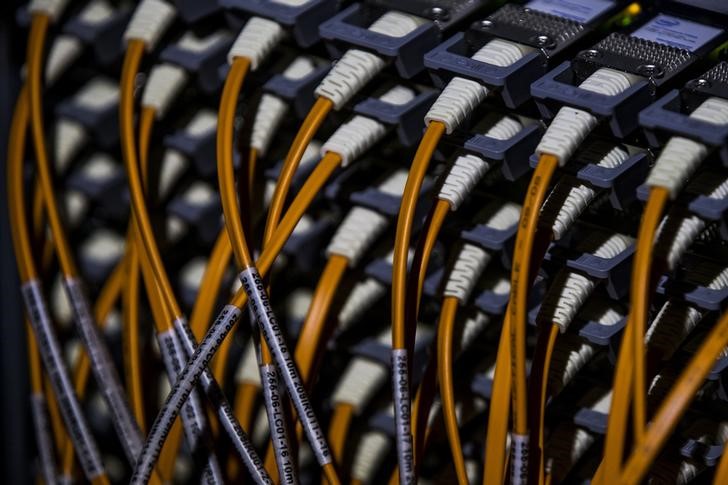ROME (Reuters) - The Italian government approved a plan on Tuesday to bring its high-speed broadband network into line with European Union targets, but it held back from forcing operators to replace their copper-wire networks with fibre-optic cable.
Italy faces growing pressure to strengthen its telecommunications infrastructure and digital sector to help improve the performance of an economy that has been in virtual stagnation for two decades.
"We are creating a plan to give our country the digital infrastructure, the digital highways like any other European country," Industry Minister Federica Guidi told reporters.
The European Commission ranks Italy near the bottom of the 28-member EU in terms of digital economy and online services. A recent report showed that almost a third of the population (31 percent) had never used the Internet.
Although basic fixed broadband is available almost everywhere, only 51 percent of households are subscribers -- the lowest level in the EU -- and only 21 percent of households have access to faster, next-generation networks.
The EU's digital agenda calls for member states to ensure by 2020 that all households have access to internet lines with download speeds above 30 megabits per second and half have access to super-fast 100-megabit connections.
The Italian government has pledged 6 billion euros ($6.71 billion) to build up the networks, which it hopes to boost with private investment from telecoms operators. Guidi said if all worked well, 100-megabit coverage could reach up to 85 percent of households.
While all sides acknowledge the need to upgrade Italy's aging copper-wire internet infrastructure, the cost of installing a new fibre-optic network over a short period has alarmed the telecoms companies.
The government favoured modernising the whole network with fibre optic cable directly into subscribers' homes (so-called fibre-to-the-home, or FTTH).
But operators argue that immediate conversion would be too costly. They prefer boosting the capacity of existing copper-wire connections that run between street cabinets and households (so-called fibre-to-the cabinet or FTTC).
Speculation that the government may order the former monopolist Telecom Italia to switch off its copper network entirely over the next few years caused some alarm in the sector, but Guidi said companies would be left to decide the most appropriate technological solution.
"The choice has been to leave the market, the operators to decide on the most efficient technology," Industry Minister Guidi told reporters.
($1 = 0.8949 euros)
